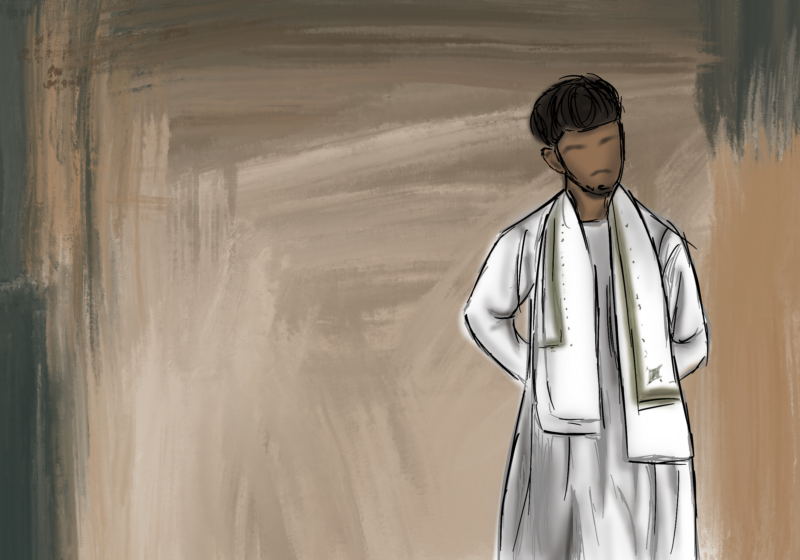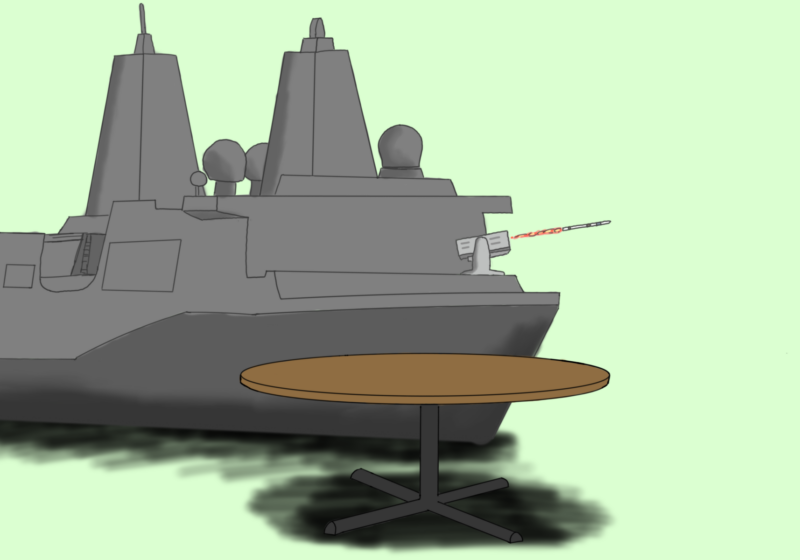In a country obssesed with national security the threat of terrorism and, domestic conflicts have been cast in a new light. The reach of this obssesion has no clear boundaries, which is perfect for the those in power because it allows them to make huge jumps in logic that would otherwise be easily recognized as asinine and dangerous.
For example, when the International Longshoreman and Warehouse Union went on strike and shut down every port on the west coast, the current administration was irate that they would dare put our national security in jeopardy. The costly strike provoked a very quick reaction from Bush, who invoked the Taft-Hartley Act, calling for a “cooling-off period,” which is merely a euphemism for a temporary ban on strikes. He also made a point to emphaise that the workers were helping terrorists, saying “This current situation imperils our national health and security.”
While discussion surrounding the issue has been entirely centered on how the strike is hurting the economy, the security aspect of it was convienently ignored. How do striking workers imperil our national security? Is their any real justification for such a statement?
The answer, of course, is no, but more importantly the very fact that the administratoin is now using this concept needs to be addressed. The implicit use of national security as an anti-union tool has become not only explicit but also accepted.
What is at stake is no less than the ability of workers to organize and collectively bargain to ensure their rights.
This is something that is not in Bush’s vision for America, and it’s not too hard to figure out that he will do all he can to further marginalize and remove those who are organized or attempting to organize.
The Department of Homeland Security proposal contained the clause that would allow the secretary of the department to write new employment rules that exempt employees of the department from all existing civil-service regulations. It would also eliminate Title 5 of the Civil Services Act, which guarantees collective bargaining rights for federal workers. This is the bill as Bush wanted it, and he has threatened to veto a revised bill from the Senate that doesn’t have such regressive changes for workers’ rights.
Additionally, the administration had been intervening in the ILWU conflict for quite some time. According to Clarence Thomas, secretary-treasurer of ILWU Local 10, Homeland Security Director Thomas Ridge and Secretary of Labor Elaine Chao both intervened personally to make it clear that a strike would not be tolerated. If Bush had his way he would replace dock workers with Navy personnel, which is something illegal except during a time of war, but of course we’re always at war now ? whether or not we’re actually fighting is immaterial.
So now, armed with the pretext of national security, Bush has his trump card in any domestic dispute, particularly ones which involve unions. The ideological counterpart is just as vital, which would have us believe that those who actively challenge the status quo and the powers that be somehow aid terrorists, regardless of what form these disputes take.
Violating workers’ rights is no longer even an issue of consideration, in fact it’s now viewed as beneficial. The administration has been claiming that existing employees’ rights tie the hands of managers, who supposedly need freedom to move and discipline people without restraint during a national emergency.
So what does this mean? Well, it demonstrates how the rationale of the war on terrorism deems a flexible labor market as vital to national health, making unions antithetical to a safe and secure state. Furthermore it indicates how the establishment of a completely untied and flexible management has become a fundamental part of national security, which is disastrous for workers everywhere.
Ultimately the administration desires a labor force that is basically powerless and vulnerable to all kinds of injustices that are now apparently good for the health and safety of the nation. The thinly veiled contempt for unions and the working class has a long history in the U.S. Government, but the fact that it has been given a new legitimacy needs to be recognized and rejected.
Muhlenberg is a sophomore and can be reached at dmuhlenberg@campustimes.org.





